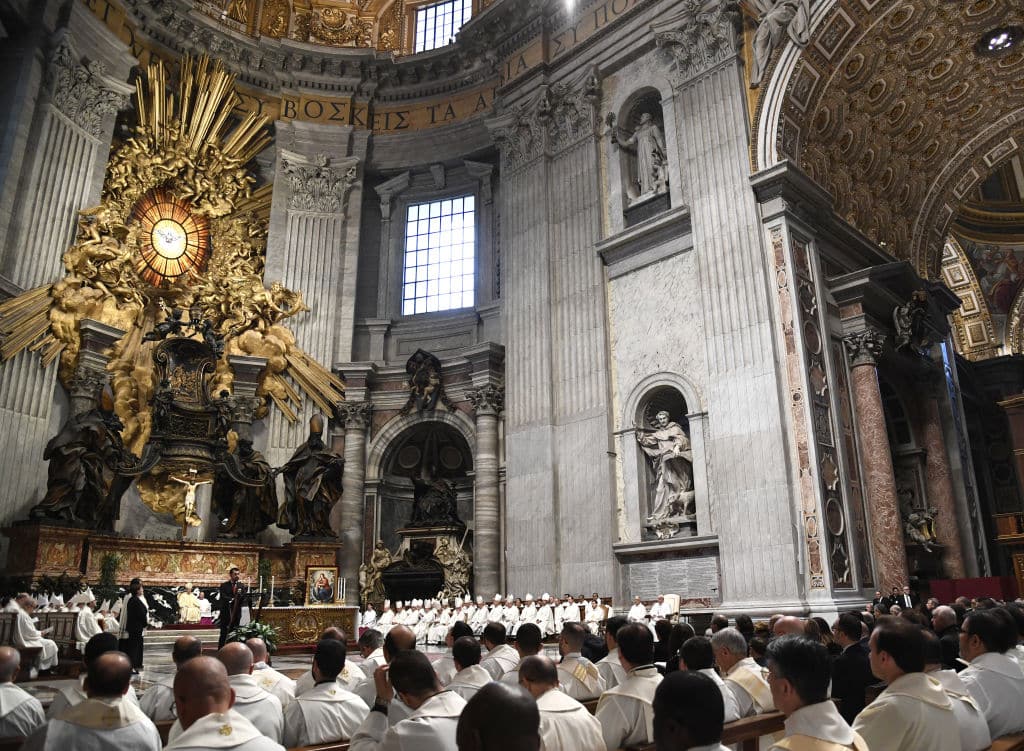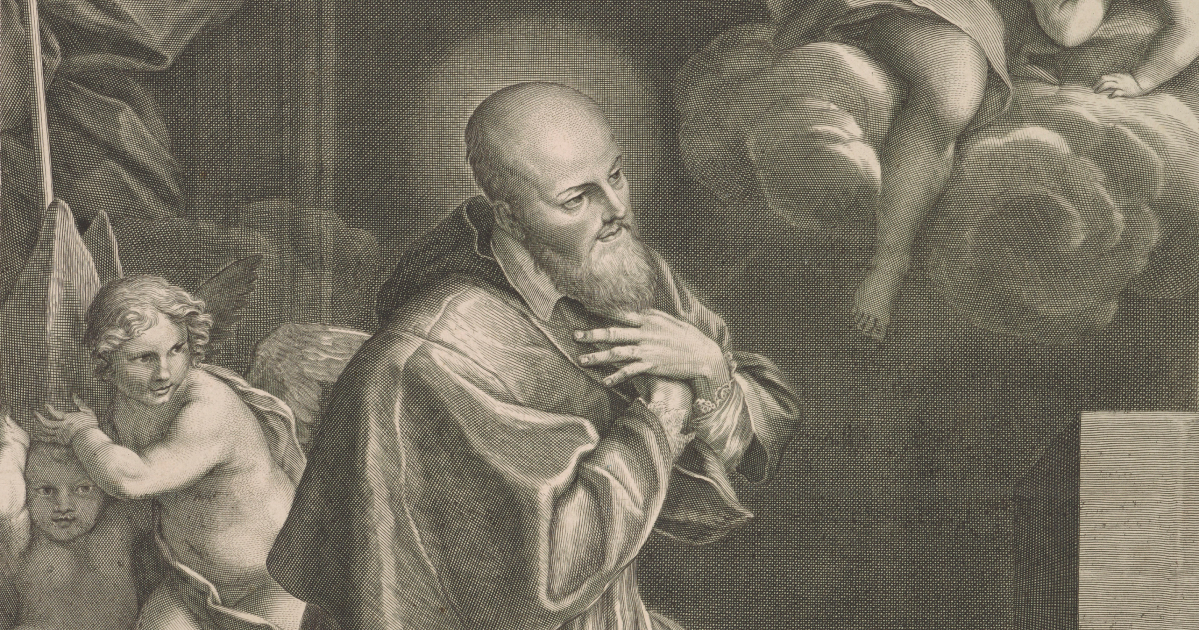Employees at St. Peter’s Basilica may not have visible tattoos or piercings, and theoretically could be suspended if they do, according to new rules issued on 29 June.
The new rules also require basilica employees to “commit to adhering to principles of exemplary religious and moral conduct", including not cohabitating outside of marriage. Employees must not have a criminal record, and must be both baptised and confirmed in the Catholic Church. They must also produce a letter from a parish priest testifying to their good standing.
The new provisions were part of a twin set of new statutes released on Saturday, which was the feast day of Sts. Peter and Paul, one governing the Fabbrica di San Pietro, meaning the administration of the basilica, and the other its “chapter", referring to a body of retired priests who assist in liturgical and sacramental life.
The rules apply to all employees of the basilica, including artistic experts and architects in addition to the so-called Sampietrini, meaning labourers who carry out routine maintenance and operations.
In addition, personnel are also barred from “taking part in activities, or attending rallies, which are inappropriate for a Vatican employee". Most observers have taken that provision to refer to events such as the Gay Pride rally which was staged in Rome on June 15.
The new rules also address the chronic leaks which have beset the Vatican in recent years, and which have resulted in two separate scandals known as “Vatileaks".
Personnel are required at the time of hiring to make a profession of faith or a loyalty oath, including the promise to maintain what’s known as the “secret of the office", generally meaning confidentiality, before one of the superiors of the basilica.
Employees are also banned from giving interviews to media outlets without authorisation, and from divulging any information covered by the “pontifical secret". They may not invite outsiders into their workplace, and may not remove “original documents and photocopies or electronic copies and other archival materials".
In what amounts to a clear break with previous practices, the rules also discourage nepotism, barring the hiring of close blood relatives of current employees without the express consent of the cardinal in charge of the basilica.
Among the new rules for the basilica chapter, the provisions specify that the canons will become merely “honorary” once they reach the age of 80 and will no longer receive stipends, though they will be allowed to retain their title and to participate in liturgical and pastoral activity in the basilica. They also will retain the right to be buried in the chapel of the chapter.
The same rules apply to canons who have not taken part in meetings and liturgical events in the basilica for more than a year.
The basilica chapter has existed as an institution in one form or another since the second half of the 11th century. Originally, the role of the chapter was to oversee sacramental life in the basilica and to administer its property, including artwork, other goods, and even real estate donated to the papacy.
Today, financial oversight has largely been turned over to the administration of the basilica, while the chapter has come to focus more on liturgical and sacramental matters. It’s composed of a vicar and 34 members, mostly retired clergy, who traditionally have been granted a stipend and living quarters in addition to fees for specific services.
Back in 2018, Pope Francis famously insisted the church should not be “afraid” of the tattoos many young people have on display, saying that priests actually can learn from them because they often communicate something important about the personality of the wearer.
“It’s important not to be scared. With young people, one should never be scared. Never,” he said at the time.
Photo: Pope Francis presides over a Mass for the episcopal ordination of Italian Archbishop Vincenzo Turturro in St. Peter's Basilica at the Vatican, 9 March 2024. (Photo by ISABELLA BONOTTO/AFP via Getty Images.)
Employees at St. Peter’s Basilica may not have visible tattoos or piercings, and theoretically could be suspended if they do, according to new rules issued on 29 June.<br><br>The new rules also require basilica employees to “commit to adhering to principles of exemplary religious and moral conduct", including not cohabitating outside of marriage. Employees must not have a criminal record, and must be both baptised and confirmed in the Catholic Church. They must also produce a letter from a parish priest testifying to their good standing.
The new provisions were part of a twin set of new statutes released on Saturday, which was the feast day of Sts. Peter and Paul, one governing the <em>Fabbrica di San Pietro</em>, meaning the administration of the basilica, and the other its “chapter", referring to a body of retired priests who assist in liturgical and sacramental life.
The rules apply to all employees of the basilica, including artistic experts and architects in addition to the so-called <em>Sampietrini</em>, meaning labourers who carry out routine maintenance and operations.
In addition, personnel are also barred from “taking part in activities, or attending rallies, which are inappropriate for a Vatican employee". Most observers have taken that provision to refer to events such as the Gay Pride rally which was staged in Rome on June 15.
The new rules also address the chronic leaks which have beset the Vatican in recent years, and which have resulted in two separate scandals known as “Vatileaks".
Personnel are required at the time of hiring to make a profession of faith or a loyalty oath, including the promise to maintain what’s known as the “secret of the office", generally meaning confidentiality, before one of the superiors of the basilica.
Employees are also banned from giving interviews to media outlets without authorisation, and from divulging any information covered by the “pontifical secret". They may not invite outsiders into their workplace, and may not remove<strong> </strong>“original documents and photocopies or electronic copies and other archival materials".
In what amounts to a clear break with previous practices, the rules also discourage nepotism, barring the hiring of close blood relatives of current employees without the express consent of the cardinal in charge of the basilica.<br><br>Among the new rules for the basilica chapter, the provisions specify that the canons will become merely “honorary” once they reach the age of 80 and will no longer receive stipends, though they will be allowed to retain their title and to participate in liturgical and pastoral activity in the basilica. They also will retain the right to be buried in the chapel of the chapter.
The same rules apply to canons who have not taken part in meetings and liturgical events in the basilica for more than a year.
The basilica chapter has existed as an institution in one form or another since the second half of the 11th century. Originally, the role of the chapter was to oversee sacramental life in the basilica and to administer its property, including artwork, other goods, and even real estate donated to the papacy.
Today, financial oversight has largely been turned over to the administration of the basilica, while the chapter has come to focus more on liturgical and sacramental matters. It’s composed of a vicar and 34 members, mostly retired clergy, who traditionally have been granted a stipend and living quarters in addition to fees for specific services.
Back in 2018, Pope Francis famously insisted the church should not be “afraid” of the tattoos many young people have on display, saying that priests actually can learn from them because they often communicate something important about the personality of the wearer.
“It’s important not to be scared. With young people, one should never be scared. Never,” he said at the time.<br><em><br>Photo: Pope Francis presides over a Mass for the episcopal ordination of Italian Archbishop Vincenzo Turturro in St. Peter's Basilica at the Vatican, 9 March 2024. (Photo by ISABELLA BONOTTO/AFP via Getty Images.)</em>


















